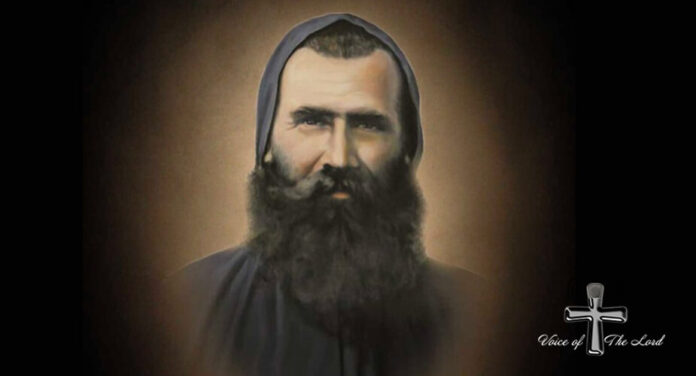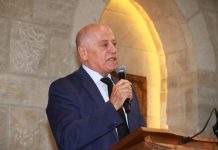Venerable Brother Estephan Nehmé and His Beatification
Elias Bejjani/August 30/2025
The Maronite Orders and Their Role in the History of Lebanon
The Lebanese Maronite Order is the heart of Maronite spirituality and its backbone from the Middle Ages until today. From the monasteries of Mount Lebanon began the movements of evangelization, education, the protection of the Christian faith, and the preservation of the Lebanese identity in the face of invasions and occupations. The Maronite monks were guardians of the land and protectors of the Word: they tilled the fields and watered the vineyards, they educated generations and copied manuscripts, and they kept Lebanon united with the Apostolic See in the Vatican. From this spiritual soil and sacred land, the saints of Lebanon arose: Charbel, Rafqa, Nimatullah, Estephan Nehmé, and others, bearing witness that Lebanon is truly a land of holiness and spiritual heroism.
The Birth of Blessed Estephan Nehmé
Youssef Estephan Nehmé was born on March 8, 1889, in the village of Lehfed – Byblos, into a devout family of six children. He grew up in a simple agricultural mountain environment, learning the basics of reading and writing in the village school, then at Our Lady of Grace School in Rasmiya, which belonged to the Maronite Order. From his childhood, signs of prayer, meditation, and solitude were visible in him, and he often repeated in his heart the phrase that would become the motto of his life: “God sees me.”
Entering the Monastery
Two years after the death of his father, and at the age of sixteen, Youssef decided to dedicate his life to God. In 1905, he entered the Monastery of Saints Cyprian and Justina – Kfifan, of the Lebanese Maronite Order.
Upon entering, he took the name Estephan, in honor of his father and the patron saint of his village. After two years of novitiate under Father Ignatius Dagher of Tannourine, he professed his religious vows on August 23, 1907, beginning a long journey of prayer, labor, and spiritual struggle in the service of the monastery.
His Character and Way of Life
Brother Estephan was known for his humility, silence, and deep spirituality. He was a hardworking monk, never idle, strong in body, dedicating himself to fieldwork, carpentry, and construction with skill and quiet dedication. He combined labor and prayer: rising before dawn to pray, then heading to the monastery’s fields. A smile never left his face, and calmness and composure marked his entire demeanor.
He loved the land and understood its value, often saying: “The farmer is a hidden king.” He lived simply, in food and clothing, detached from worldly possessions, clinging only to God and to the Virgin Mary, whose rosary he prayed unceasingly.
His Miracles
During his life, he radiated peace and love to those around him. After his death, many miracles were attributed to his intercession:
Healings from incurable diseases.
Helping the poor during the years of famine and the First World War.
The preservation of his body, which remained incorrupt after his death in 1938, a clear sign of his sanctity.
These miracles were documented by the Church in his cause for beatification and became the reason for the spread of his veneration among the faithful in Lebanon and abroad.
His Death and Beatification
Brother Estephan passed away peacefully on August 30, 1938, at the Monastery of Kfifan, at the age of 49, after a life rich in prayer and work. He was buried in the same monastery, near Saint Nimatullah Al-Hardini.
The investigation into his holiness began in 2001, and on December 17, 2007, Pope Benedict XVI confirmed his heroic virtues. He was beatified in a solemn celebration in Lebanon on June 27, 2010, becoming the fourth blessed of the Lebanese Maronite Order, after Charbel, Rafqa, and Nimatullah.
His Sayings
Brother Estephan left behind only a few words, but they reveal the depth of his spirituality:
“God sees me.” (His lifelong motto)
“Blessed is the one adorned with knowledge that leads to God.”
“Love does not need knowledge, for it comes from the heart.”
His Evangelical Witness
Brother Estephan left an enduring evangelical witness: he was the example of the simple, hardworking monk, who wrote no books and gave no sermons, but preached by his silent holiness and by a Gospel that could be read in his face and his actions. His life was a silent testimony that holiness is not in outward greatness but in simple, daily faithfulness: prayer, work, love, obedience, and joy. For this reason, he is considered today the patron of workers and farmers, and of all who labor with their hands to live with dignity.
Conclusion
Brother Estephan Nehmé is both a farmer of the land and a farmer of holiness. His life reflects the journey of the Maronites and their monks in Lebanon: struggle, sacrifice, work and prayer, a deep bond with both earth and heaven. He is a living image of Lebanon the message, Lebanon of the saints, Lebanon rooted in faith and always lifted up to God.


















